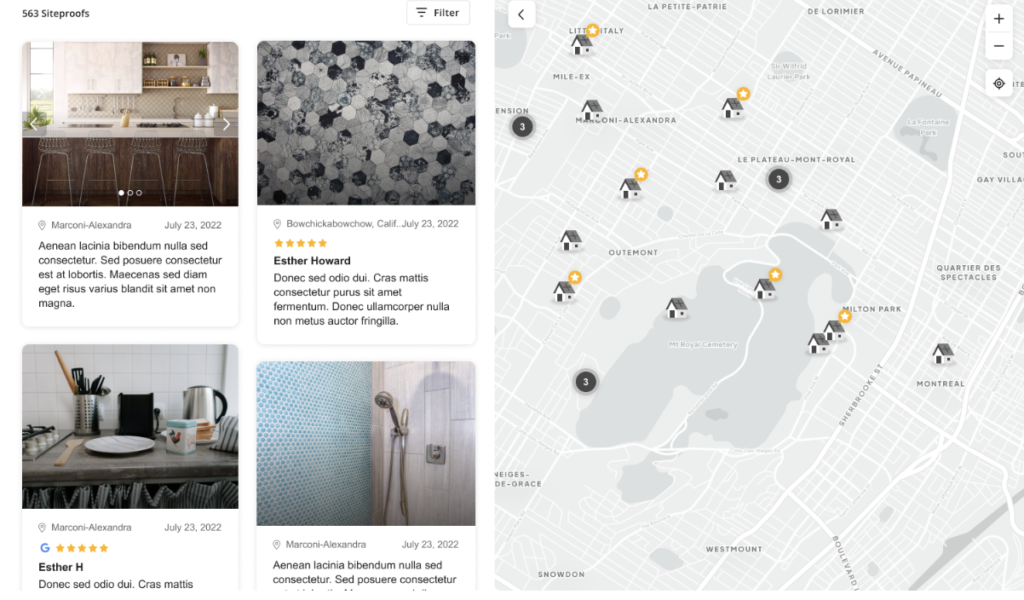Last Updated on August 30, 2025
Do you run a local home services business but find yourself chasing work instead of providing your services to clients? Whether you’re a contractor, a handyman or own an appliance repair company, garage door repair, locksmith, plumbing, or any other local service, the tips below can easily improve your bottom line in a matter of days.
Table of Contents
ToggleMarketing Tips for Local Home Services Companies
We used some of the techniques below to more than triple the profitability of one of the biggest home services companies in the US, and some other techniques on others, so everything was tested extensively.
1. Hire a Marketing Agency
I know what you think: “Marketing agencies are expensive”, “they don’t guarantee results”, “I’d be better off buying leads”, and here’s why I think you’re wrong:
A good marketing agency can blend different marketing channels to ensure you hit your revenue, profit, and business goals. It would also ensure that they generate more profit than what they charge, so in most cases, it really is a no-brainer.
When you hit your “size limit”, a good agency would find growth opportunities so you can scale up your operation without sacrificing your revenue.
2. Optimize Your Google Business Profile (previously: Google My Business or GMB)
Never underestimate the value of a well-optimized Google Business Profile. The lead and call quality is usually very high and from clients that are close-by and ready to hire a professional.
The optimization process is relatively straightforward. If you want to do it by yourself, make sure to include your keywords in the description and add some good-looking images. If you prefer hiring a professional to do it for you, it shouldn’t be too expensive.
3. Retain your Existing Clients Better
We always think that as soon as people need a service such as yours, they go to Google and look for a service provider, but there’s one thing they do before that.
The first thing they do is try to find out if they know someone they have hired in the past by searching their contact list on their phone. I know you like handing out these magnets, but they are not as effective as you think.

4. Measure, Measure, and Measure Some More.
It’s easy to track calls, but not all calls are the same. Report paying customers back to your ads platform through offline conversions, preferably with conversion value. This will ease the process of optimizing your campaigns to favor high-paying clients over those who will likely not hire you or just pay for the service call.
5. Take a Second Look at Your Service Areas
Even if you can technically service one big city and 10 of its suburbs, it doesn’t mean you should. Take a look at your data (and if you don’t collect it, start now) and see which neighborhoods or cities you convert more leads into fulfilled jobs and which areas’ average value per job is higher.
You’d be better off focusing your energy there rather than spreading across a bigger area just to get lower revenue per job.
6. Collect Good Reviews Efficiently
It’s very easy to collect good reviews. One way is to email a client a survey after you leave and ask them to rate your job and their experience. If they gave you a good score, ask them to rate you on Google My Business, Facebook, or Yelp, and if not, give them space to write why – this is a great opportunity for improvement and to try and make up for poor experiences.
Make sure not to incentivize your clients to leave positive reviews (through discounts and freebies, for example), as it goes against the terms and conditions of most review services (Trustpilot, Yelp, BBB, etc), and you don’t want this notice to hang above your page:

7. Display Your Reviews on Your Site in a Great Way
Collecting the reviews, though, is just half the job. To take it to the next level, you need to showcase them in a way none of your competitors do.
Think about a map showing users visiting your website your 5-star reviews from their neighbors. Amazing, right? It’s pretty simple, too, and we offer this as a service to our clients.
This little thing alone increased the conversion rate for some of our clients by almost 30%!

8. Don’t Put All of Your Eggs in One Basket
Diversify your marketing efforts over a few different ad platforms, and don’t just concentrate on the biggest one. Try Google Ads, Microsoft Advertising (Bing), Yelp, and other relevant networks. By doing that, you can pay less of a “premium” on each platform and significantly lower your marginal cost per lead.
If you already use Google Ads, look at these tips to help them perform better.
9. Getting Work from Big Companies is Fine, but Won’t Take You Far
Although getting the lead for “free” is tempting, these companies usually take around 50% of the client’s payment. This comes down to an average of $130 per job (excluding parts), and let me tell you that most leads don’t cost that much.
You’d be much better acquiring your leads yourself, promoting your own business, and putting your name out there instead of identifying yourself as an employee of another company.
10. Buying Leads or Calls is not As Good as You Think
A lead aggregator’s sole responsibility is to provide you with leads, but not all leads are of the same quality or fit your business in the same way. Some leads are more likely to hire your company, some are projected to bring a bigger job than others, and some are just from users who want you to evaluate the problem for free over the phone.
It’s nothing against lead companies, but this is just how things work. Once they give you the lead (or forward you the call), they don’t know whether you got paid or what payment you received, meaning that they won’t be able to optimize for higher-value clients.
Another thing that is hidden from local home services businesses is that, in many cases, the way pay-per-call companies and lead aggregators generate leads is by setting up fake companies that users call to get services from. When you pick up the phone or call the lead, they have no idea who you are or why you answered the phone because they tried contacting a different company.
11. Keep Communicating With Your Clients Throughout The Year
We like to think that most local home services answer an immediate need, but the truth is that many jobs wait for a few weeks before the client calls a professional. Tons of small projects around the house, such as hanging shelves, small drywall repairs, and other non-urgent tasks, wait until spring cleaning, the holiday season, or until they gather a few small things to justify calling for a professional.
By emailing your clients with valuable information and discounts throughout the year, especially during the peak seasons, you can stay on their minds and even save a lot of money on paid advertising during the most competitive months. Not to mention that you can impacr their decision and cause them hire you instead of trying the FYI route.
Make sure to have a yearly gantt with relevant holidays to not miss this sort of opportunity. Collecting emails is simple enough, and the cost of emailing your clients is insignificant compare to the potential revenue it can bring.
Finishing Thoughts
Today, we looked at 11 different ways you can improve the marketing efforts of businesses in the home services industry. Implementing any of the above tips could really make a difference, and the more you use, the better!
You can read more about the impact of some of these in a series of three case studies, in which we used many of the tips mentioned on this article. The overall result was multiplying the revenue of an appliance repair company by 3.8 (part 1, part 2, part 3).
If need help getting more leads that actually buy your service, improving your bottom line, or scaling up, feel free to reach out for a free consultation. We’d be happy to help!